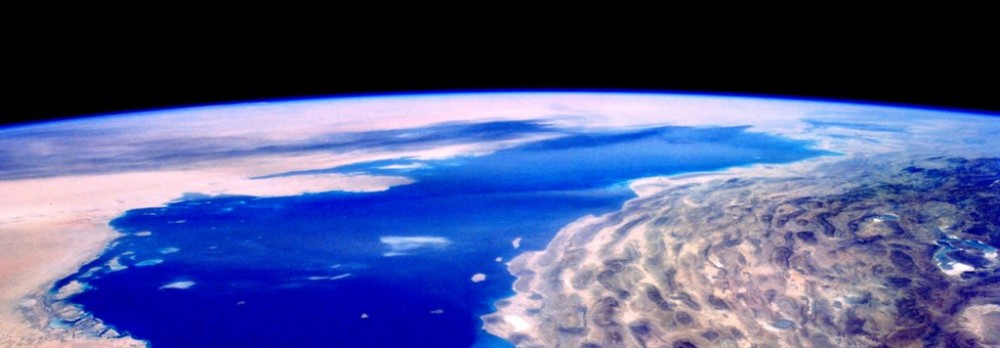This year I was fortunate enough to be able to spend two weeks in Brazil. One of my selected holiday books was Lenin’s “Imperialism, the Highest Stage of Capitalism”, which I’ll be the first to admit isn’t your typical light holiday read.
Although I can’t say I “enjoyed” reading Lenin’s predictions as to the future decay of capitalism in quite the same way I would enjoy a David Mitchell say, I found the book immensely interesting and equally unsettling. Read against the backdrop of one of the world’s fastest growing economies, the book seemed particularly poignant; it felt like Brazil was reinforcing Lenin’s view of capitalism thundering along on its almost predestined path.
With “Imperialism, the Highest Stage of Capitalism” being my first dip into the history of global economics, I have no doubt that as I become more widely read the fledgling views and theories stated here will seem naïve and childlike when reviewed in the future. This is inevitable; I’m told that even Marx massively contradicts his earlier work as he matures. However, I digress.
So, here is my summary of Lenin’s book:
In capitalist economies, companies strive to run at higher and higher efficiency levels in order to maximise profit. Processes are gradually streamlined over time, and technology leveraged to reduce labour costs. These technological advances made industrialisation and mass production inevitable.
Around the end of the 19th century, the trend of companies cooperating with other companies in order to become even more profitable became more widespread, leading to the formation of cartels and trusts. There are many reasons why this is advantageous, some examples being economies of scale, the sharing of logistics and centralisation of research and development.
These organisations were collectively very powerful, and could work together to eliminate competition and free trade; one of the very foundations of early capitalism. A rise in acquisitions and mergers, and ultimately the formation of massive corporations followed. The monopoly was born.
As these corporations grew, so did the capital required for continued growth. In a world where cash-flow and shareholder dividends are paramount, capital is rarely held in reserve. So it falls to the banks to provide required corporate capital.
Thus, the banks became very powerful, elevated from mere transaction brokers to stakeholders in big business. The boundaries between the boards of directors in the corporations and the banks became blurred, with banks providing “advisors” to the businesses they lent money to and influencing corporate policy. In controlling the capital, the banks control the corporations.
Lenin states that capitalism is destined to plateau and stagnate. This is inevitable; as markets saturate there is no longer the demand to drive profit producing production. The formation of large corporations extended the lifetime of capitalism by maximising profits, while putting power into the hands of the fortunate few in the banks and corporations. However, the decay continued, and yet more inventive ways were needed to perpetuate the economic paradigm. One such way was imperialism.
By moving into and controlling third world and developing countries, the developed capitalist world gained access to a massive yet incredibly cheap (sometimes free) workforce, controlled a large percentage of the earth’s natural resources and opened up new and untapped markets for its products. And so the already ongoing colonial race stepped up a gear in the 20th century, with countries like the UK, America and France leading the way.
It’s now almost 100 years since Lenin wrote “Imperialism, the Highest Stage of Capitalism”. Where are we now? As Lenin suggested, the colonies would only take oppression from their capitalist masters for so long; nowadays Imperialism is a dirty word, and a cause of national embarrassment rather than pride.
With the ex-colonies self-governing once more, I still can’t help feeling that the playing field still isn’t level, and that oppression from the developed world is far from over. Sure, these countries are politically independent, but in a world in which bankers rather than politicians call the shots, what does political independence mean when business is still controlled by first world corporations?
And what of capitalism? Our global economy is in trouble once more, but this time there are no obvious directions in which capitalism can turn in order to revive itself. World debt is out of control, austerity has become an everyday expression and people are rioting on the streets of developed countries. I am fearful for the future. The powerful few that pull the strings behind the scenes in our world banks and corporations have shown time and time again they are both ingenious and totally lacking in empathy. It is common knowledge that the world’s most profitable business is war.
So what can be done?
I believe we have to try and break the consumerist cycle on which capitalism depends. Here are some ideas:
- As pointed out by the brilliant Zeitgeist movies, don’t support the two largest world banks, JP Morgan and Citibank.
- Don’t be sucked in by advertising and don’t be a habitual consumer. The next generation of iPhone may have richer colours and a better resolution than the last, but will it really make your life better and you happier? If your current phone is still perfectly fine, why waste money on upgrading? You work hard for your money so use it wisely.
- Re-use and repair where possible. Modern society is becoming more and more “throw-away”. Extend the serviceable lives of the things you own where possible. Most of the natural resources on which we currently depend are finite; it is criminal that they should end up in landfill sites.
- Use small businesses and cooperatives where possible to ensure that profits are put back into the pockets of people associated with the business rather than those who deal in shares.
- Don’t support anything related to war. Don’t join the armed forces and don’t allow your friends and family to do so.

